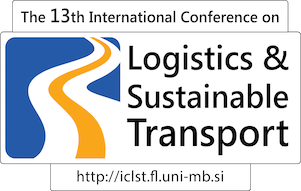Professor Dong-Wook Song, PhD, Edinburgh Napier University, Scotland
Dong-Wook Song is Professor of Transport and Logistics at the Transport Research Institute, Edinburgh Napier University, UK. Prior to the current post, he worked at Hong Kong and Heriot-Watt Universities. He is currently an Associate Editor of the two major research outlets in ‘logistics and supply chain management’ and ‘maritime transport and logistics’ – Internal Journal of Logistics: Research and Applications and Maritime Policy and Management, and sits on an editorial board at known transport and logistics journals including International Journal of Physical Distribution and Logistics Management. His research has been well recognised by peers in the field and received a number of The Best Paper Awards from academic associations and communities. A recent article in Transport Reviews (2013) shows that his collaborative works in seaport research are highly ranked – among the top listed over the last three decades (1980-2009). Another article in Maritime Policy and Management (2013) lists his two papers (2003 and 2002) are among the top 30 most cited papers over the forty-year-history of the journal (1973-2013). He is a Chartered Member of The Chartered Institute of Logistics and Transport, and has held a number of visiting posts – recent ones at the University of the West Indies, Trinidad and Tobago; Nanyang Technological University, Singapore; and Shanghai Maritime University, China. Dong has worked as a consultant for a number of private and public organisations including the UN, OECD, ADB and World Bank. He has served IAME as an elected council member since 2012. He has a research interest in managerial and strategic aspects of global maritime transport and logistics. See Citation Index for more of his research works and TRI website for his profile.

